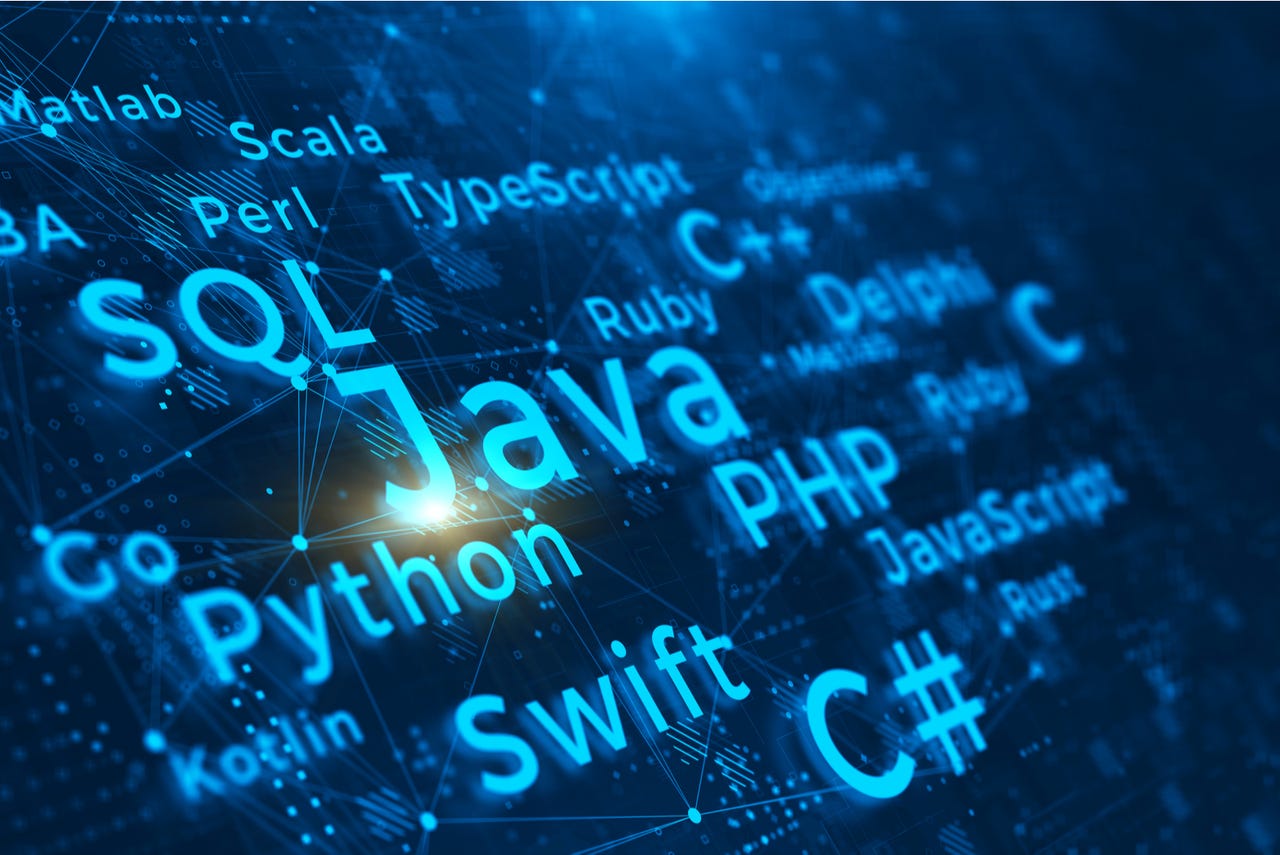
































Coding can be challenging, particularly for beginners. New programmers often benefit from starting with an easier programming language.
Programming languages tell computers how to do specific tasks. Complex programming languages with dense syntax and complicated functions can challenge even experienced coders. Programming pros who want to learn a new language may prefer an easier option.
Our list introduces the easiest programming languages to learn, including each programming language's uses and roles that use them.
Roles that use it:Front-end developers, CSS developers, full-stack developers, mobile app developers, bloggers, website editors
Why it's easy to learn:
Mobile app development bootcamps can give aspiring developers a shorter and more cost-effective pathway to the fast-growing software development profession.
Read nowCSS, or cascading style sheets, determines the look of a website. While HTML provides website content, CSS determines how it displays, including colors, fonts, and layouts. Every website uses CSS.
A rule-based language, CSS makes it easy to learn foundational skills like changing colors or font size. Many learners teach themselves CSS through online tutorials, books, or other self-teaching resources. Web development bootcamps and coding websites also teach CSS.
Roles that use it:Systems engineers, Go developers, Google cloud developers, software engineers, data scientists
Why it's easy to learn:
A programming language developed by Google, Go can be used for infrastructure, cloud applications, and other server-side uses. A simpler language than C++, Go provides simple, readable code for all kinds of uses, including in data science, robotics, and artificial intelligence.
Go, sometimes called Golang, prioritizes speed. The language makes automation and system programming simpler. It's also an open-source language. Learners can pick up Go through self-taught tutorials or through a bootcamp.
Roles that use it:Front-end developers, full-stack developers, web developers, bloggers, website editors, mobile app developers
Why it's easy to learn:
HTML, or hypertext markup language, tells websites how to display text and what text to show. Using HTML, programmers can create bullet points, headers, or text blocks. They can also insert images or hyperlinks into text.
Every website since the mid-1990s has used HTML, and the language has changed little in that time. Most learners pick up HTML quickly. Many people teach themselves HTML through free courses, online tutorials, or other resources. Web development bootcamps also teach HTML.
Roles that use it:Web developers, front-end developers, full-stack developers, front-end engineers, back-end developers, JavaScript developers
Why it's easy to learn:
JavaScript makes websites interactive through features like dropdown menus, image carousels, and web apps. Before the mid-2000s, websites only used HTML and CSS. Then JavaScript opened up new possibilities to create dynamic, engaging websites.
Although JavaScript is more complex than HTML and CSS, its intuitive features make it a good first programming language. Learners study JavaScript through bootcamps or classes. Keep in mind that Java bootcampsteach Java, not JavaScript.
Roles that use it:Web developers, back-end developers, full-stack developers, PHP developers, PHP engineers
Full-stack web development bootcamps offer some of the most direct, accessible, and affordable educational pathways to the web developer and engineer professions.
Read nowWhy it's easy to learn:
Many websites rely on PHP to run server-side functions. PHP code can pull information from a database to display on a website or process data from forms. It can also shape how websites look and function.
Developed in the 1990s, PHP has a large community of experienced users. Learners also benefit from many resources to study PHP, including online courses, web tutorials, and bootcamps. However, before learning PHP, make sure to master HTML and CSS first.
Roles that use it:Software engineers, software developers, Python developers, quality assurance engineers, Python full-stack developers, GIS analysts, data scientists
Why it's easy to learn:
One of the most popular programming languages, Python is also among the easiest programming languages to learn. Coders use Python to create applications, crunch data, and automate processes. It's also used in artificial intelligence and machine learning.
Many major companies rely on Python for data analytics, interactive gaming, and e-commerce. Python bootcamps and a wealth of online Python courses teach the language to thousands of new programmers each year.
Roles that use it:R developers, R programmers, software engineers, data analysts, data scientists, database administrators, data visualization analysts
Why it's easy to learn:
R can also be used to visualize data, for machine learning, and for data analysis. Researchers in many fields, from academia to healthcare, use R to crunch numbers and display data. A powerful programming language, R can have a steep learning curve because of its unique syntax.
But once learners master R, they can use the language for diverse analytical purposes. Online tutorials, bootcamps, and programming classes all teach the R language.
Roles that use it:Ruby programmers, software developers, software engineers, Ruby developers, web developers, back-end developers
Why it's easy to learn:
Many websites rely on Ruby for back-end functions like storing and saving data. Programmers rely on Ruby for backup operations, web applications, server-side functions, and even streaming. They commonly use the Rails framework for Ruby, also known as Ruby on Rails.
Ruby prioritizes simple language and code. Because Ruby is open-source, learners can pick it up through many free online resources and tutorials. Bootcamps and online classes also teach Ruby.
Which programming language should you learn? Whether you're studying your first programming language or adding a new language, the following considerations will help you decide which language to learn next.
Start by evaluating your skill level. Complete beginners with no prior coding experience might want to choose a different language than an experienced programmer.
For beginners, simple languages like HTML and CSS often provide an easy introduction to coding. Many beginners also rank Python among the easiest first languages.
Note that some programming languages work best in pairs. Learners should understand HTML and CSS before learning JavaScript. Similarly, knowing a C language helps people studying Go.
Consider your time constraints and availability when choosing a programming language. Most learners can pick up HTML and CSS in a matter of weeks. More complex programming languages, like JavaScript and Ruby, often take months.
While evaluating your timeline, also consider how you plan to learn. An intensive bootcamp requires a high time commitment, while self-paced online courses provide more flexibility. A degree takes more time but trains students in multiple programming languages.
Many tech careers require multiple programming languages -- but different roles require different languages.
For example, front-end web developers need to know HTML, CSS, and JavaScript.
Software engineers might use Python, Java, or Ruby, depending on where they want to work and the kind of work they want to do.
Weigh your career goals to decide which programming language will pay off. If you don't have clear career goals, consider choosing a versatile language like Python.
Where can you learn to code? Coding bootcamps, degree-granting programs, and online courses all help people learn programming languages. Many learners mix and match these methods to strengthen their learning.
Beginners learning their first programming language can practice coding through websites such as Udemy and Coursera. A GitHub account lets learners showcase their projects.
Coding bootcamps offer an accelerated, intensive format to learn programming. Learners can choose from bootcamps at universities or bootcamps offered by independent companies. Bootcamps also offer specialized courses of study, including full-stack web development, mobile app development, and UX design.
A degree in computer science or programming builds strong programming skills. During a college program focused on programming, majors study multiple programming languages and other tech skills.
Many independent companies offer online courses to learn programming languages. Some free online classes grant a certificate. Many eLearning platforms charge a subscription or per-course fee. For example, Codecademy offers free courses and pro courses available to subscribers.
Online tutorials, YouTube channels, and other internet resources offer programming training for free. Many companies and websites specialize in free programming language courses, like freeCodeCamp.
 Tags quentes :
Informática & Tecnologia
Tags quentes :
Informática & Tecnologia